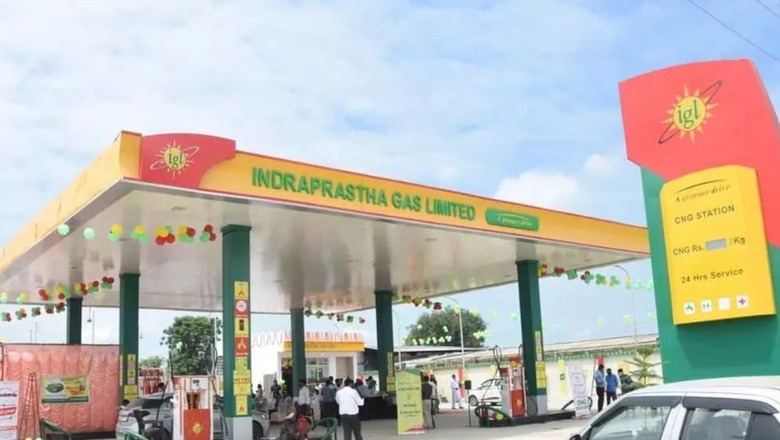
views
IGL Share Price: Shares of the gas distribution company Indraprastha Gas (IGL) extended their losing streak for the second straight session on Friday (October 20) after global brokerage double-downgraded the stock to hold from the earlier buy rating. The scrip slipped 10% in early deals today after brokerage Jefferies downgraded the stock to hold.
Jefferies has cut its target price to Rs 465 a share, down 3 per cent, from its earlier target price of Rs 565 a share after it estimated a potential 30 percent hit on IGL volumes from FY25 onwards, with new general advisories (GAs) are unlikely to offset the slowdown in the NCR, which makes up 88 percent of IGL’s volumes. It downgraded FY25/26 EPS by 7-9 per cent and reduced the valuation multiple due to increasing EV-related risks.
Cab aggregators make up about 30 per cent of these volumes, with Uber, Ola, and e-commerce delivery services being the largest contributors. Uber has already ordered 25,000 EVs from Tata Motors in early 2023. Additionally, approximately 15 per cent of IGL’s volumes come from DTC buses and three-wheelers, and they also face EV-related risks due to the procurement of 5,500 EV buses and favorable economics for three-wheel EVs.
The company’s expansion into new areas and potential acquisitions offer growth opportunities, but these might not fully offset a slowdown in the NCR region, Jefferies said.
Indraprastha Gas shares tanked 10 per cent to Rs 411.75 against the previous close of Rs 457.45 on BSE. IGL stock has been falling for the last three sessions. The large-cap stock is trading lower than the 5-day, 20-day and 50-day, 100-day, and 200-day moving averages. IGL stock has gained 9 per cent during the last one year and lost 1.44 per cent since the beginning of this year.
The market cap of the clean energy firm fell to Rs 29,053 crore. Total 2.42 lakh shares changed hands amounting to a turnover of Rs 10.13 crore. The large-cap stock hit a 52-week high of Rs 515.55 on May 9, 2023, and a 52-week low of Rs 373.45 on October 20, 2022.
The firm supplies CNG to automobiles and piped cooking gas to household kitchens in the national capital and adjoining towns.
With the implementation of the policy, the government intends to reach a 50 per cent adoption rate within the next three years and ultimately transition to 100 per cent electric fleets within five years. The initiative includes the complete electric conversion of all commercial categories, including delivery vehicles, by the year 2030.



















Comments
0 comment